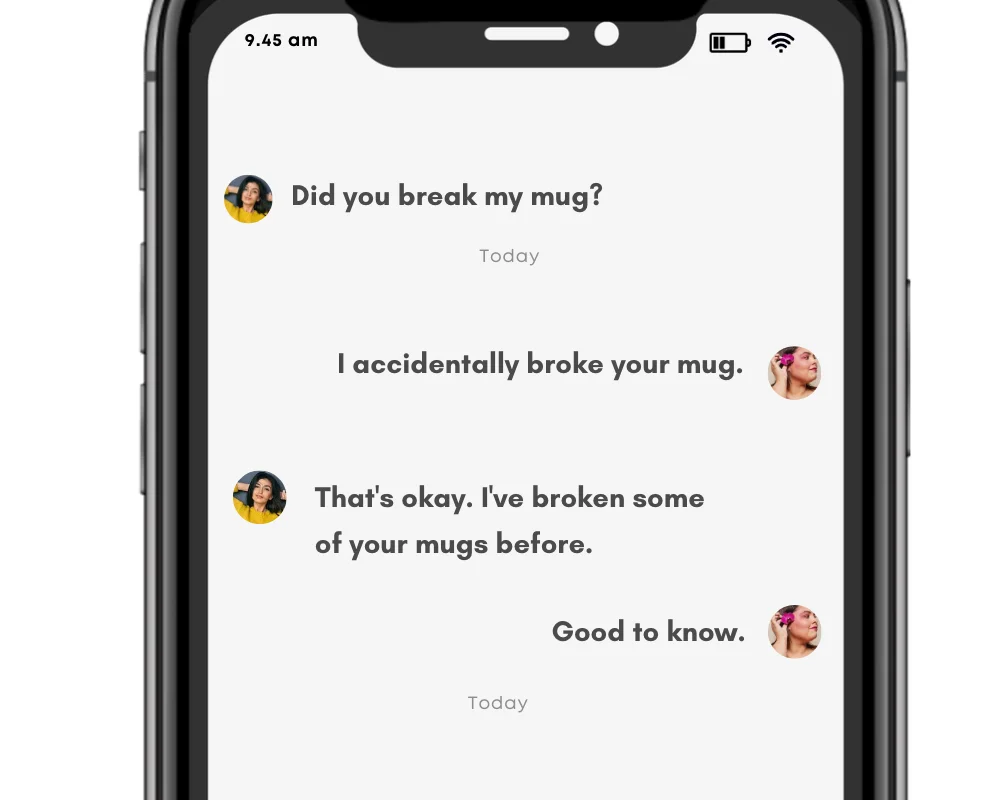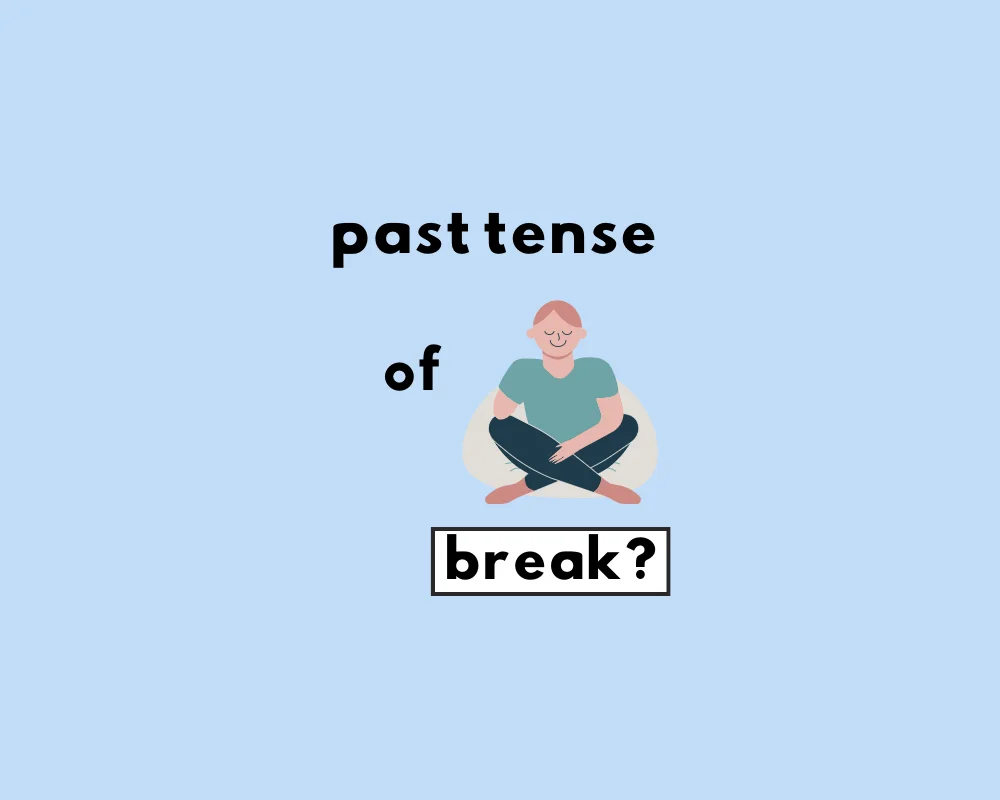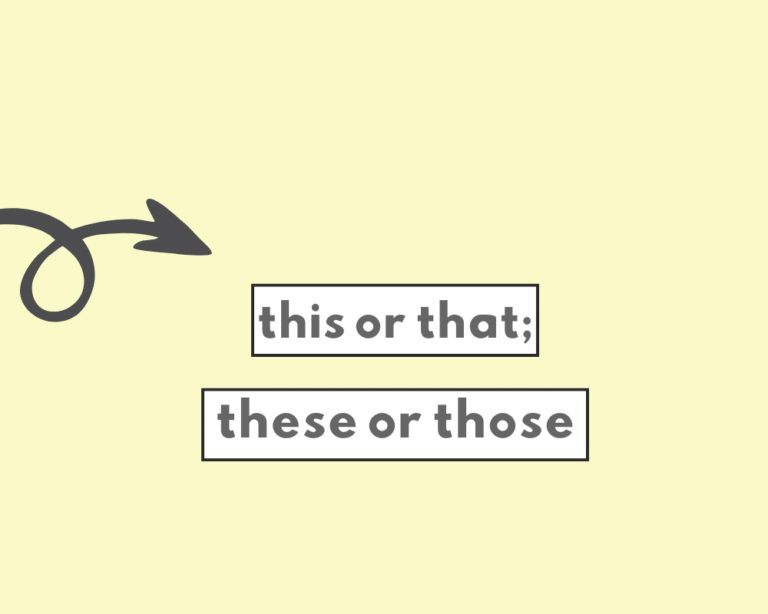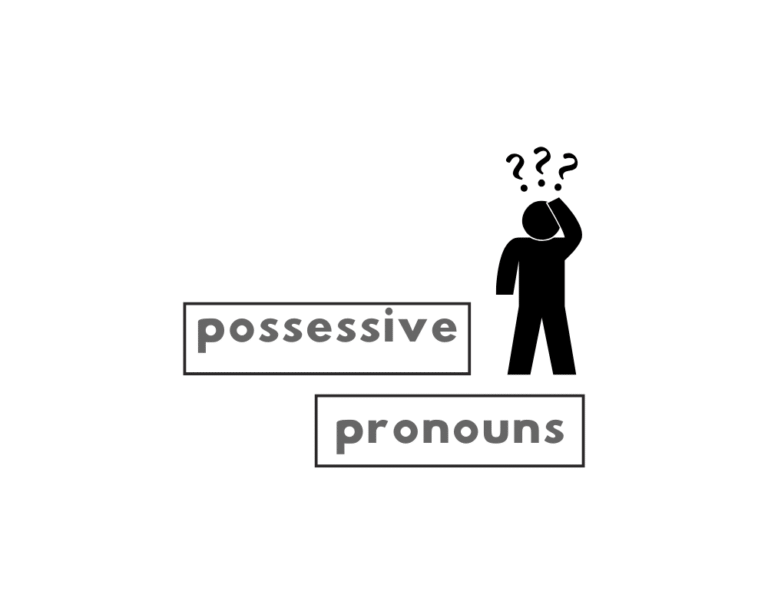
Break, broke, broken: What’s the difference?
Break, broke, or broken—what’s the difference between each conjugation of the (irregular) verb, break?
✓I’ll break the chocolate in half.
✓I broke the chocolate.
✗I broken the chocolate.
Break (verb) is described in the dictionary as, “to come apart or split into pieces : fragment, shatter. The cup broke when it fell.”
| present | past | future | |
| simple | I break | I broke | I will break |
| continuous | I am breaking | I was breaking | I will be breaking |
| perfect | I have broken | I had broken | I will have broken |
| perfect continuous | I have been breaking | I had been breaking | I will have been breaking |
Remember to always pair participles with an auxiliary! For perfect tenses, use ‘have’, ‘has’, or ‘had’. For continuous, use a form of ‘to be’.
Usage note: broke
The simple past tense of break, which is broke, is regularly used as an adjective to describe not having enough money, or any money, as in, ‘the company wentbroke.’ Also, ‘I can’t go out anymore, otherwise I’ll go broke.
Is break a regular or irregular verb?
The simple past tense of ‘break‘ (rhymes with wake) is broke (rhymes with woke). The past participle is broken (rhymes with woken). Break has 3 forms altogether: break, broke, and broken. Break is not the only irregular verb in English with 3 verb forms:
| base verb | past tense | past participle |
| wear | wore | worn |
| tear | tore | torn |
| swear | swore | sworn |
| steal | stole | stolen |
| break | broke | broken |
Regular verbs in English end in -ed in its past tense forms. Break, in its past tense forms, clearly does not end in -ed. So break (along with each of the verbs listed above, and more) are treated as irregular verbs in English.
Broke vs broken: which to use when
Read these sentences:
|
I broke my leg skiing. (simple past) |
|
I heard that Bob and Lucy havebroken up. (past participle) |
The sentence with the past participle broken places have in italics. This tells us that broken is indeed a participle: participles follow a helpingverb or auxiliaryverb (such as have, has, would) to reflect tense, voice, count, and other verbal information. Try removing the ‘have‘ from the sentence, and it won’t make sense: I heard that Bob and Lucy broken up. Here, you’d switch to the simple past, i.e., broke, to correct the sentence. The pastparticiple also requires sentence objects (direct or indirect), and is communicated in the passivevoice (as opposed to active).
“Break” / “broke” / “broken”, used in sentences
| Examples: break / breaks / breaking |
|---|
| 2. I’ve been getting the feeling she is trying to break us up. 3. Early cars tried to be faster and faster, to break the 60 mph barrier. 4. I always heard marriage could break up a good friendship. 5. If you break it, you replace it. |
| Examples: broke / broken |
|---|
| 1. He rubbed his eyes and a smile broke across his face. 2. So that was how he broke his nose. 3. No one broke the silence. 4. She broke down and called a lawyer. 5. Her voice broke and she stopped, wiping her eyes. 1. She died of a broken heart. |
Origin of the word break
From etymology online on break (v.):
Old English brecan “to divide solid matter violently into parts or fragments; to injure, violate (a promise, etc.), destroy, curtail; to break into, rush into; to burst forth, spring out; to subdue, tame” from Proto-Germanic *brekanan.
| Types of verbs & verb tenses | what’s the past tense of …? |
|---|---|
| forms of ‘to be’ | … seek? |
| auxiliary verbs | … teach? |
| present tense | … catch? |
| future tense | … buy? |
| past tense | … read? |
| perfect tense | … draw? |
| transitive vs. intransitive | … drive? |
| participles | … throw? |
| irregular verbs | … lead? |
| modals | … win? |
Worksheet: Irregular verbs
What is the simple past tense of “break”?
Which sentence uses “broken” correctly?
Is “break” a regular or irregular verb?
What is the past participle of “break”?
Which sentence uses the past tense of “break” correctly?
The vase into pieces.
My phone screen is .
He had his leg.
The news report said the company went .
I my ankle during the game.
FAQs
Is “break” a regular or irregular verb?
+
What’s the past tense of “break”?
+
How do I use “broke” vs. “broken”?
+
What are the three forms of “break”?
+
Can “broke” be used as an adjective?
+
Yash, D. "What’s the Past Tense of Break? (Break, Broke, Broken?)." Grammarflex, Jun 25, 2025, https://www.grammarflex.com/whats-the-past-tense-of-break-break-broke-broken/.










